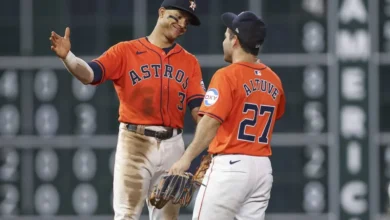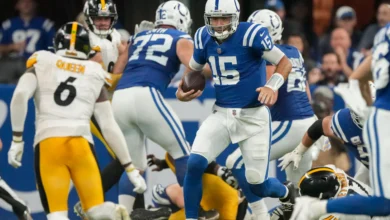The Ultimate Guide to the Ballon d’Or: History, Criteria, Controversies, and Top Winners 2024

Introduction to the Ballon d’Or
Ballon d’Or is arguably the most prestigious individual award in the world of football. Awarded annually by the French magazine France Football, it recognizes the best male and female footballers based on their performances over the previous calendar year. The name translates to “Golden Ball,” symbolizing the honor and glory associated with being recognized as the world’s best.
The Ballon d’Or has been awarded since 1956, making it one of the oldest and most respected awards in football history. Its significance is immense; for many players, winning the Ballon d’Or is a dream, and being shortlisted is an achievement in itself. While numerous awards celebrate individual brilliance, none hold the weight and prestige of the. It’s the award that every player, coach, and fan eagerly anticipates each year.
In recent years, the Ballon d’Or has expanded to include women’s football, further emphasizing its importance in recognizing the best talents globally. The ceremony is not just about crowning the winner; it’s a celebration of the sport, showcasing the beautiful game’s evolution, skills, and memorable moments.
- The History of the Ballon d’Or
The history of the Ballon d’Or is a rich tapestry of football’s greatest moments and personalities. It was first awarded in 1956 to England’s Stanley Matthews, a player known for his elegance and skill. This inaugural award set the tone for what would become a yearly tradition that celebrates football excellence. Initially, only European players were eligible, and only journalists from Europe were allowed to vote. However, this changed significantly over the decades.
In 1995, the award expanded to include non-European players who played in European leagues. This pivotal change opened the door for many legends from around the world to be recognized, including George Weah, the first non-European winner from Liberia in 1995. In 2007, another change allowed players from any league around the world to be eligible, further expanding the Ballon d’Or’s global reach.
The format of the Ballon d’Or also evolved. Between 2010 and 2015, it was merged with the FIFA World Player of the Year award, creating the FIFA. However, in 2016, the partnership ended, and the award returned to its original format under the sole control of France Football. Despite the changes, the prestige and influence of the Ballon d’Or have only grown, making it a revered institution in the sport.
- Ballon d’Or Criteria: How Winners Are Chosen
Choosing the winner of the is a meticulous process that involves various criteria. Traditionally, the award has considered a player’s individual skill, team success, sportsmanship, and career consistency. Each criterion carries weight, but the individual performance in the calendar year is often the most influential factor. Simply put, the better the year a player has had, the higher the chance they have of winning.
Performance in key competitions like the UEFA Champions League, FIFA World Cup, and major domestic leagues plays a significant role. Goals, assists, leadership on the pitch, and memorable moments all contribute to a player’s candidacy. Additionally, consistency throughout the season is crucial—one outstanding performance isn’t enough; players need to maintain a high standard across several months.
Off-the-field behavior and sportsmanship also matter. The Ballon d’Or is not only about football skills but also character. Players who exhibit professionalism, fair play, and act as role models for the younger generation tend to receive favor. In recent years, the rise of analytics has added a layer of complexity, with stats like Expected Goals (xG), passing accuracy, and defensive contributions becoming part of the evaluation.
Who Votes for the Ballon d’Or?

The voting process for the Ballon d’Or is as fascinating as the award itself. The award’s unique feature is its voting body: a panel of international journalists. Each participating country is represented by a football journalist, typically from a reputable publication. This gives the a distinct flavor, as the votes reflect the perspectives of experts worldwide, not just within a single region.
Each journalist submits their top five players, ranking them from first to fifth. A first-place vote awards six points to the player, while the second, third, fourth, and fifth choices earn four, three, two, and one point(s) respectively. The player with the highest cumulative points wins the award. This voting system has evolved over the years to maintain transparency and fairness.
One notable aspect is the absence of fans, coaches, and players in the voting process. Unlike awards that rely on fan voting or include a diverse panel, the Ballon d’Or maintains a journalist-exclusive voting system. This decision is rooted in the desire to keep the award objective, avoiding bias that could arise from fan favoritism or internal team politics.
- Key Moments in Ballon d’Or History
Over the decades, the Ballon d’Or has been marked by unforgettable moments that have defined football history. The 1971 award ceremony was notable for Johan Cruyff’s first win, which heralded the rise of “Total Football.” Cruyff’s technical skill and tactical awareness revolutionized the game, making his wins significant milestones.
In 1995, George Weah’s victory as the first African and non-European player changed the perception of the award. It symbolized the global nature of football and marked a turning point in recognizing talent beyond Europe. Weah’s triumph remains one of the most iconic moments in Ballon d’Or history, inspiring countless African players to aim for the prestigious award.
The 2009 ceremony was another highlight, with Lionel Messi securing his first after an extraordinary season with Barcelona. This win was just the beginning of the Messi era, as he went on to dominate the award for over a decade. Every ceremony since then has been eagerly watched by millions, not just for the winners but for the jaw-dropping speeches, stunning outfits, and the celebration of football’s elite.
- Ballon d’Or Winners: A Decade-by-Decade Breakdown
The Ballon d’Or winners reflect the evolving nature of football, with each decade showcasing a different style and set of players. In the 1960s, the award was dominated by names like Eusebio and George Best, representing a time when individual flair and dribbling prowess were celebrated. It was an era of flamboyant attackers and prolific scorers.
The 1980s shifted towards a focus on technical skill and tactical intelligence, with players like Michel Platini and Marco van Basten setting new standards. This period also saw an emphasis on European dominance, as the award still restricted eligibility to players in European leagues.
The 2000s and beyond have seen the rise of modern legends like Ronaldinho, Kaka, and the duopoly of Lionel Messi and Cristiano Ronaldo. This era is characterized by a blend of athleticism, technical finesse, and tactical versatility. The increase in data-driven analysis and global scouting has made it possible for more diverse talents to shine, creating a landscape that’s truly international.
Top Ballon d’Or Winners of All Time
When it comes to the Ballon d’Or, a few names stand out as the greatest of all time. Lionel Messi holds the record with the most Ballon d’Or wins, showcasing his consistency, brilliance, and unparalleled skill. His career is a testament to longevity and excellence, with each win marking a new chapter in football history.
Cristiano Ronaldo is another name synonymous with the. Known for his incredible work ethic, athleticism, and goal-scoring prowess, Ronaldo has a significant number of Ballon d’Or titles under his belt. His rivalry with Messi has captivated fans and defined an era, with their back-and-forth battles for the award becoming legendary.
Other notable names include Johan Cruyff, Michel Platini, and Marco van Basten, who each won multiple awards during their peak. Their contributions to the sport were not just about winning but redefining how the game was played. The list of top winners is a who’s who of football history, a reflection of changing tactics, styles, and the evolution of the beautiful game.
Ballon d’Or Controversies and Debates

The Ballon d’Or has not been without its controversies. One of the biggest debates revolves around the subjective nature of the voting process. Critics argue that the award often favors attackers and overlooks defensive players, even though football is a team sport where every position matters. The fact that defenders like Fabio Cannavaro (2006) and goalkeepers like Lev Yashin (1963) are rare winners highlights this debate.
Another contentious point is the dominance of Lionel Messi and Cristiano Ronaldo over the past two decades. While their talent is undeniable, some believe that their rivalry has overshadowed other deserving players. For instance, many felt that Franck Ribéry deserved the 2013 Ballon d’Or after leading Bayern Munich to a treble, but he lost out to Ronaldo.
In 2020, the award faced a unique controversy when it was canceled due to the COVID-19 pandemic, leading to widespread disappointment. Many felt that Robert Lewandowski, who had an extraordinary season, was robbed of his chance to win. These controversies are part of what makes the so intriguing; it’s not just about who wins, but the stories and debates that surround it.
- The Messi-Ronaldo Era of Ballon d’Or Dominance
The Ballon d’Or will forever be linked to the era of Lionel Messi and Cristiano Ronaldo. From 2008 to 2021, the award was predominantly a two-horse race, with Messi and Ronaldo swapping titles year after year. This period is often dubbed the “Golden Age” of football, where fans witnessed two of the greatest players in history pushing each other to new heights.
Messi’s style is all about finesse, vision, and effortless dribbling, while Ronaldo is known for his power, aerial ability, and clinical finishing. This contrast in playing style made their rivalry captivating, with each award ceremony becoming a stage for their ongoing duel. Messi’s dominance in Barcelona’s iconic 2009 season, and Ronaldo’s incredible performances in Real Madrid’s Champions League campaigns, are just a few highlights of their battles.
Their rivalry has sparked countless debates: Who is the greatest? Who deserved more Ballon d’Or? While fans may never reach a consensus, there’s no denying that the Messi-Ronaldo era has elevated the Ballon d’Or’s significance, making it a cultural phenomenon beyond the footballing world.
- The Impact of Ballon d’Or on Player Careers
Winning the Ballon d’Or is more than just receiving a trophy; it’s a defining moment that can shape a player’s career. A Ballon d’Or win often leads to increased marketability, higher transfer fees, and lucrative endorsement deals. It’s a badge of honor that signifies a player has reached the pinnacle of the sport, forever cementing their legacy among the greats.
For many players, winning the Ballon d’Or also translates to leadership roles within their teams. They become the face of their clubs, national teams, and, in some cases, entire leagues. This added responsibility often brings pressure, but it can also inspire greater performances as players strive to live up to their status.
However, not winning the Ballon d’Or can be just as impactful. Players who come close but fall short often find themselves driven to reach even greater heights. In some cases, the snub can spark an incredible comeback season, as seen with many who narrowly missed out only to claim the prize in subsequent years.
The Ballon d’Or vs. Other Football Awards
While the Ballon d’Or is the most famous individual award, it’s not the only one. FIFA’s The Best Award and the UEFA Men’s Player of the Year are also significant, creating a competitive landscape in the world of football accolades. Each award has its criteria, voting body, and format, leading to debates over which is the most prestigious.
The Ballon d’Or is known for its tradition and history, making it the most sought-after award among players. In contrast, FIFA’s The Best Award, which started in 2016, incorporates a wider voting pool, including national team captains, coaches, and fans, adding a different perspective. Some argue that Ballon d’Or’s journalist-only voting system makes it more objective, while others believe that a broader vote offers a more comprehensive view.
Comparing these awards highlights how complex individual recognition in football can be. While winning any of them is a tremendous achievement, the Ballon d’Or continues to hold a unique place in the hearts of fans and players alike, often seen as the ultimate testament to a player’s brilliance.
- Women’s Ballon d’Or: Rising Recognition
The introduction of the Women’s Ballon d’Or in 2018 marked a significant step forward for the recognition of women’s football. Ada Hegerberg became the first female recipient, setting a precedent for the future. This addition was a long-awaited acknowledgment of the immense talent in women’s football, and its impact has been profound.
The Women’s Ballon d’Or has not only elevated individual players but also brought more attention to women’s leagues and competitions globally. Stars like Megan Rapinoe and Alexia Putellas have become household names, inspiring young girls around the world to dream big. The women’s award follows the same criteria as the men’s, focusing on individual brilliance, team success, and overall impact on the game.
This new chapter in Ballon d’Or history underscores the growing parity between men’s and women’s football. The inclusion of a Women’s demonstrates a commitment to diversity and has paved the way for a new generation of female athletes to be celebrated on the grandest stage.
- Future of the Ballon d’Or: What’s Next?
The future of the Ballon d’Or is an exciting prospect as football continues to evolve. With the rise of young stars like Kylian Mbappé and Erling Haaland, there is speculation about who will dominate the award in the post-Messi and Ronaldo era. These players represent a new generation with unique skills, personalities, and a fresh approach to the game.
Technological advancements are also likely to play a role in the future of the Ballon d’Or. As data analytics becomes more sophisticated, there may be a greater emphasis on statistics and performance metrics in the voting process. This shift could lead to more transparency and a deeper understanding of why certain players are chosen over others.
Furthermore, the expansion of women’s football suggests that the Women’s Ballon d’Or will gain even more prominence. There may be a future where the women’s award garners equal attention as the men’s, reflecting the global growth of the sport. Whatever lies ahead, the Ballon d’Or is poised to remain a symbol of football excellence.
- How to Predict a Ballon d’Or Winner: Key Factors to Consider
Predicting the winner of the Ballon d’Or is a favorite pastime for fans and analysts alike. While the award can be unpredictable, a few key factors can help make an educated guess. The first and foremost is individual performance in major competitions. Players who shine in tournaments like the Champions League or the World Cup often have an edge.
Consistency throughout the calendar year is also crucial. While a player might have a standout month or two, the Ballon d’Or tends to reward those who maintain a high level from January to December. Another important factor is team success—players from teams that win major trophies tend to have a better chance, as collective achievements often bolster individual recognition.
Lastly, popularity and narrative play subtle roles. The Ballon d’Or has a storytelling element, with voters sometimes swayed by a player’s journey, struggles, or redemption arc. Understanding the storylines that define a football season can often provide clues to who will be crowned the next Ballon d’Or winner.
- Frequently Asked Questions about the Ballon d’Or.
Q1: How is the Ballon d’Or winner decided?
The Ballon d’Or winner is decided by a voting process involving international journalists. Each journalist ranks their top five players, and points are awarded based on these rankings. The player with the highest total points wins.
Q2: Who holds the record for the most Ballon d’Or wins?
Lionel Messi holds the record for the most Ballon d’Or wins, with several titles to his name. His career has been defined by consistent brilliance, making him a Ballon d’Or legend.
Q3: Why was there no Ballon d’Or awarded in 2020?
The 2020 Ballon d’Or was canceled due to the COVID-19 pandemic. France Football cited the disruption of the football calendar and lack of consistent play as reasons for not awarding the prize that year.
Q4: Can goalkeepers and defenders win the Ballon d’Or?
Yes, goalkeepers and defenders can win the Ballon d’Or, although it is rare. Lev Yashin remains the only goalkeeper to have won the award, while defenders like Fabio Cannavaro have also claimed the title.
Q5: What is the difference between the Ballon d’Or and FIFA’s The Best Award?
The main difference lies in the voting process. The Ballon d’Or is voted on by journalists, while FIFA’s The Best Award includes votes from national team coaches, captains, journalists, and fans.
Q6: When is the Ballon d’Or ceremony held?
The Ballon d’Or ceremony typically takes place at the end of the calendar year, often in December. It’s a glamorous event attended by football’s biggest stars, celebrating the year’s best performances.


